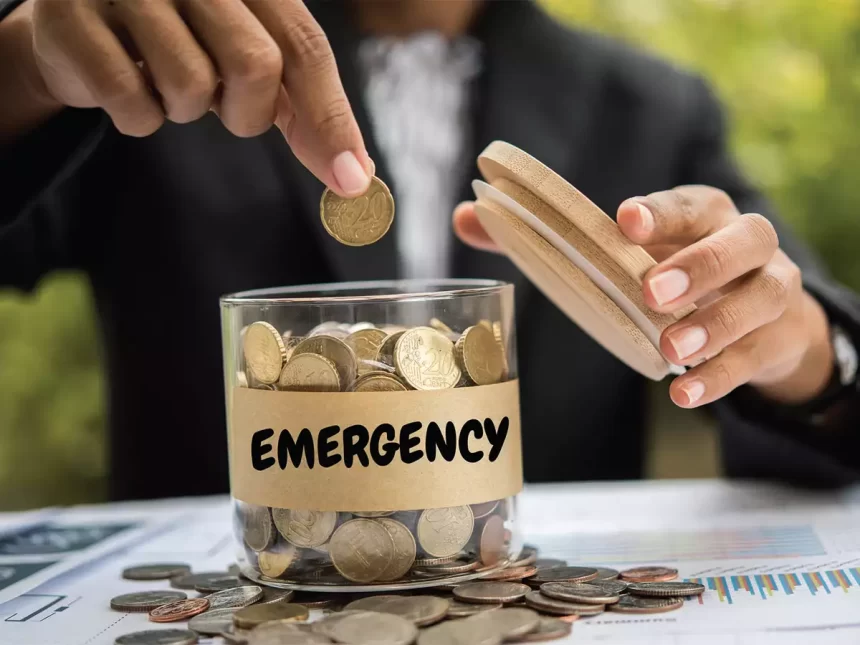Traveling is an incredible way to explore the world, meet new people, and create memories that last a lifetime. But as much as we all want our journeys to go smoothly, life can throw us a curveball when we least expect it. Whether it’s a canceled flight, a sudden illness, or a lost passport, having an emergency fund can make these situations manageable rather than overwhelming. Let’s dive into how you can build and manage an emergency fund for your travels so you can explore the world with confidence and peace of mind.
Why You Need an Emergency Fund for Travel
Imagine this: You’re on a dream vacation in Paris, savoring a croissant by the Seine, when your phone buzzes with an alert. Your return flight has been canceled due to unforeseen weather. Now what? An emergency fund is your financial cushion that prevents you from scrambling for cash or racking up credit card debt.
Unexpected travel expenses can come in many forms:
- Medical emergencies: From a sudden case of food poisoning to a broken limb.
- Lost items: Replacing essentials like luggage, passports, or electronics.
- Unforeseen cancellations: Hotel bookings, flights, or tours that don’t go as planned.
- Extended stays: Needing to pay for additional nights at a hotel due to delays.
Having a dedicated travel emergency fund ensures that these surprises don’t derail your entire trip—or your finances back home.
How Much Should You Save for a Travel Emergency Fund?
The amount you should save depends on several factors:
- Destination: Traveling to a high-cost destination like Switzerland will require a larger cushion than visiting a budget-friendly country like Vietnam.
- Duration of Travel: Longer trips naturally increase the likelihood of unexpected events, so a bigger fund is advisable.
- Risk Factors: Consider the type of activities you’ll engage in. A hiking trip in Patagonia carries different risks than a beach vacation in Florida.
A good rule of thumb is to save 20-30% of your total travel budget as your emergency fund. For example, if your trip budget is $2,000, aim to save an additional $400-$600.
How to Build Your Emergency Fund
Building an emergency fund doesn’t have to be overwhelming. Here’s how you can do it step-by-step:
- Set a Goal: Start by determining how much you need based on your travel plans. Break this goal into smaller, manageable chunks.
- Automate Savings: Use a savings app or set up an automatic transfer from your checking account to a dedicated savings account each month. Even $50 a month adds up quickly.
- Cut Unnecessary Expenses: Skip a few coffee shop visits or dine out less frequently. Redirect these funds to your emergency savings.
- Sell Unused Items: Do you have clothes, gadgets, or other items collecting dust? Sell them online and add the earnings to your fund.
- Earn Extra Income: Consider taking on a side hustle, like freelance work or rideshare driving, to fast-track your savings.
Where to Keep Your Travel Emergency Fund
Your emergency fund should be easily accessible but not so easily reachable that you’re tempted to dip into it for non-emergencies. Here are some good options:
- High-Yield Savings Account: These accounts earn interest and keep your money liquid. Look for one with no fees.
- Separate Checking Account: Keep your emergency fund in a dedicated account separate from your daily spending.
- Cash Reserve: While not the safest option for large amounts, carrying some cash in the local currency can be helpful in destinations where card payments aren’t widely accepted.
- Travel-Friendly Credit Card: While not a direct substitute for savings, a credit card with travel perks can be a useful backup.
Smart Tips for Managing Your Emergency Fund While Traveling
- Don’t Touch It Unless It’s an Emergency: This fund is not for impulse purchases or splurging on a fancy dinner.
- Monitor Your Expenses: Use apps like Mint or YNAB (You Need A Budget) to track your spending and ensure you’re staying within your budget.
- Carry Multiple Payment Methods: Have a mix of cash, credit cards, and digital payment options in case one method fails.
- Notify Your Bank: Let your bank know where you’ll be traveling to avoid your cards being flagged for suspicious activity.
- Keep Emergency Contacts Handy: Have the phone numbers of your bank, insurance provider, and credit card companies stored in your phone and written down in case of loss or theft.
Planning for Specific Scenarios
- Medical Emergencies:
- Travel Insurance: Invest in a comprehensive travel insurance plan that covers medical expenses, evacuations, and trip interruptions.
- Health Documents: Carry a copy of your health insurance card and know how to contact your provider while abroad.
- Lost or Stolen Items:
- Secure Backups: Keep digital copies of important documents like your passport and travel itinerary in a secure cloud storage.
- Travel Insurance Coverage: Check if your plan includes reimbursement for lost items.
- Emergency Funds: Use your emergency fund to replace essentials and keep receipts for reimbursement claims.
- Flight Delays or Cancellations:
- Airline Policies: Familiarize yourself with your airline’s cancellation and delay policies.
- Travel Apps: Apps like Hopper and Skyscanner can help you find last-minute flight deals if rebooking is necessary.
How to Replenish Your Emergency Fund Post-Travel
If you end up using your emergency fund, it’s crucial to replenish it as soon as possible to prepare for your next adventure. Treat it as a priority expense:
- Review Your Budget: Identify areas where you can cut back temporarily to rebuild your fund.
- Set a Timeline: Aim to replenish your fund within a specific timeframe, like three to six months.
- Celebrate Small Wins: Reward yourself as you hit savings milestones to stay motivated.
Benefits of Being Financially Prepared
Having an emergency fund while traveling doesn’t just provide a safety net; it offers peace of mind. Knowing you have a financial backup allows you to:
- Fully enjoy your trip without constantly worrying about the “what-ifs.”
- Handle unexpected situations with confidence and ease.
- Avoid going into debt or derailing your long-term financial goals.
Final Thoughts: Empower Yourself to Travel Smart
Travel is one of life’s greatest joys, but it’s not without its challenges. By building and maintaining an emergency fund, you’re setting yourself up for stress-free adventures, no matter what comes your way. Remember, being financially prepared isn’t about expecting the worst; it’s about empowering yourself to handle the unexpected with grace and resilience.
Now it’s your turn: What steps have you taken to prepare financially for your travels? Share your tips or stories in the comments below—we’re all in this journey together!













